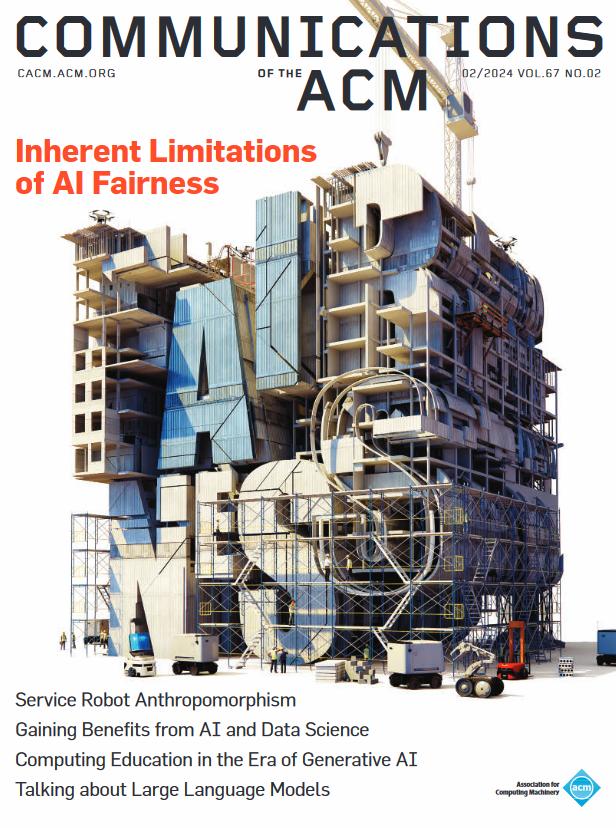Ou Pourquoi ni les utilisateurs ni les développeurs ne devraient utiliser les termes "savoir", "croire" ou "penser" pour qualifier de ce que *font réellement les LLM (Large Language Models, les modèles de langages au coeur des systèmes d'IA actuels)
Article de recherche pp. 68-79 :
Shanahan M. Talking about Large Language Models
Interacting with a contemporary LLM-based conversational agent can create an illusion of being in the presence of a thinking creature. Yet, in their very nature, such systems are fundamentally not like us.
Référence complète & accès au texte intégral : Shanahan M. Talking about Large Language Models. Commun ACM [Internet]. févr 2024 [cité 9 févr 2024];67(2):68-79. Disponible sur: https://dl.acm.org/doi/10.1145/3624724
Résumé de la version de prépublication déposée sur l'archive ouverte ArXiv en février 2023 :
Thanks to rapid progress in artificial intelligence, we have entered an era when technology and philosophy intersect in interesting ways. Sitting squarely at the centre of this intersection are large language models (LLMs). The more adept LLMs become at mimicking human language, the more vulnerable we become to anthropomorphism, to seeing the systems in which they are embedded as more human-like than they really are. This trend is amplified by the natural tendency to use philosophically loaded terms, such as “knows”, “believes”, and “thinks”, when describing these systems. To mitigate this trend, this paper advocates the practice of repeatedly stepping back to remind ourselves of how LLMs, and the systems of which they form a part, actually work. The hope is that increased scientific precision will encourage more philosophical nuance in the discourse around artificial intelligence, both within the field and in the public sphere.
Version de prépublication en texte intégral : Shanahan M. Talking About Large Language Models [Internet]. arXiv; 2023 [cité 22 févr 2023]. Disponible sur: http://arxiv.org/abs/2212.03551
Voir aussi
[Vidéo] Comment les I.A. font-elles pour comprendre notre langue ?
